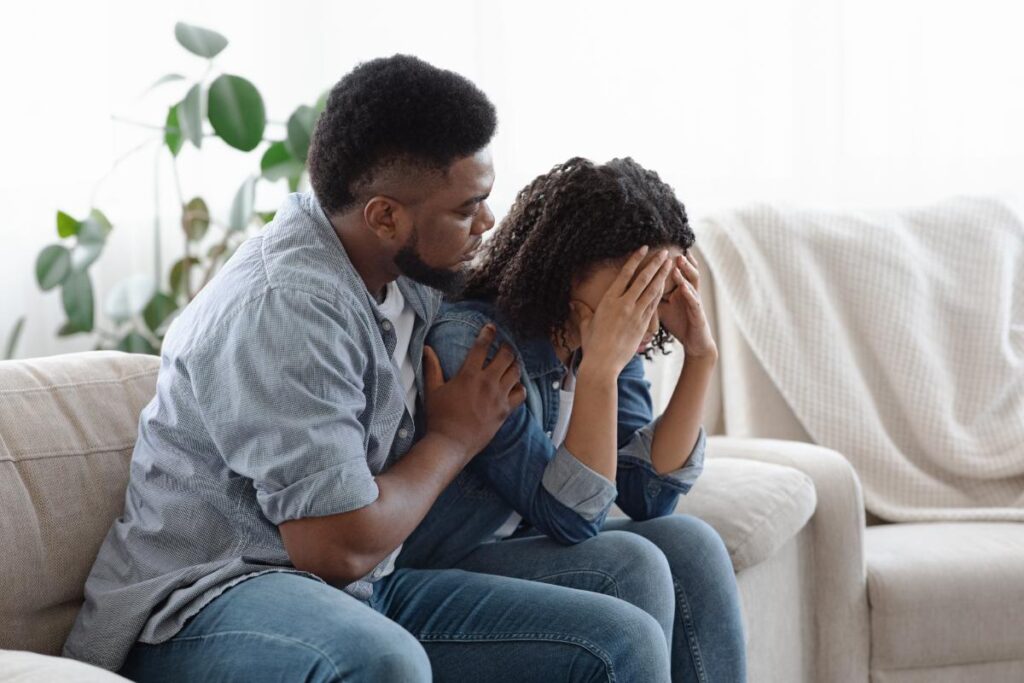Opioids are potent drugs that have a high potential for addiction. Often prescribed for pain relief, they work by attaching to opioid receptors in the brain, blocking pain signals, and releasing large amounts of dopamine, which creates a feeling of intense pleasure. Unfortunately, this pleasurable effect can lead to misuse, and many individuals unintentionally become dependent on opioids. For friends or loved ones of those who use opioids, you may find yourself asking, “Does my loved one need opioid addiction treatment?”
Northpoint Nebraska can help you answer that question. While it is true that opioids are legal and medically necessary in many cases, they still carry risks. The shift to dependency and addiction can be subtle, even for the one taking the opioids. We offer comprehensive inpatient addiction treatment services, including opioid addiction treatment. Call 888.351.3834 today to learn more.
Signs You or a Loved One Needs Opioid Addiction Treatment
Recognizing the signs of opioid addiction is crucial for early intervention and effective treatment. Some signs that a loved one may be struggling with opioid addiction include:
- Changes in mood or behavior
- Social withdrawal or isolation
- Neglecting responsibilities
- Unusual sleep patterns
- Physical signs such as constricted pupils, slurred speech, or impaired coordination
It’s essential to approach this topic with sensitivity and understanding—addiction is a disease, not a choice.
Therapies for Opioid Addiction Treatment
At Northpoint Nebraska, we utilize a variety of evidence-based therapies to treat opioid addiction. These include:
- Cognitive-behavioral therapy (CBT) – helping individuals identify and change negative thinking patterns and behaviors related to opioid use.
- Dialectical behavior therapy (DBT) – teaching skills to regulate emotions and improve relationships.
- Group therapy – providing peer support and building a community of individuals in recovery.
- Family therapy – involving loved ones in the treatment process to help repair relationships and create a supportive home environment.
- Relapse prevention therapy – developing strategies to prevent a return to opioid use.
Each therapy has benefits and limitations, but when used in combination, they can effectively address the multifaceted nature of addiction.
The Role of Inpatient Opioid Addiction Treatment
Inpatient treatment serves a key role in opioid addiction recovery. It provides a structured environment away from triggers, allowing patients to focus solely on recovery. The process typically involves detoxification, therapy, and aftercare planning.
- Detoxification – This is the initial phase of the treatment process, aimed at removing the opioids from the patient’s system. It’s usually accompanied by withdrawal symptoms, which can range from mildly uncomfortable to severe. Medical professionals within an inpatient setting can monitor and manage these symptoms, providing the necessary treatment and support. This stage is crucial as it prepares the body and mind for the therapeutic process.
- Therapy – Following detoxification, therapy becomes the bedrock of recovery. Therapies such as CBT and DBT help individuals understand the root causes of their addiction, learn how to manage cravings and develop healthier coping mechanisms. The group and family therapies provided offer a supportive network, reinforcing the recovery journey.
- Aftercare Planning – This stage is essential for long-term sobriety. The transition from the controlled environment of an inpatient facility to daily life can be challenging. An aftercare plan helps mitigate this, providing clear strategies to maintain sobriety, avoid triggers, and continue to build on the skills learned during therapy. Aftercare planning can include regular check-ins with therapists, participation in support group meetings, and even continued medication if needed.
The duration varies depending on the individual’s needs, but it can significantly improve the chances of long-term recovery.
Take Action with Northpoint Nebraska
If you believe your loved one could benefit from opioid addiction treatment, don’t hesitate to reach out. At Northpoint Nebraska, we offer comprehensive, compassionate care in a modern facility. Our brand-new onsite gym and central Omaha location provide a comfortable and convenient environment for recovery. We’re dedicated to helping individuals overcome addiction and reclaim their lives.
Don’t wait—contact us online or by calling 888.351.3834 for more information about our programs and services. Together, we can make a difference.

